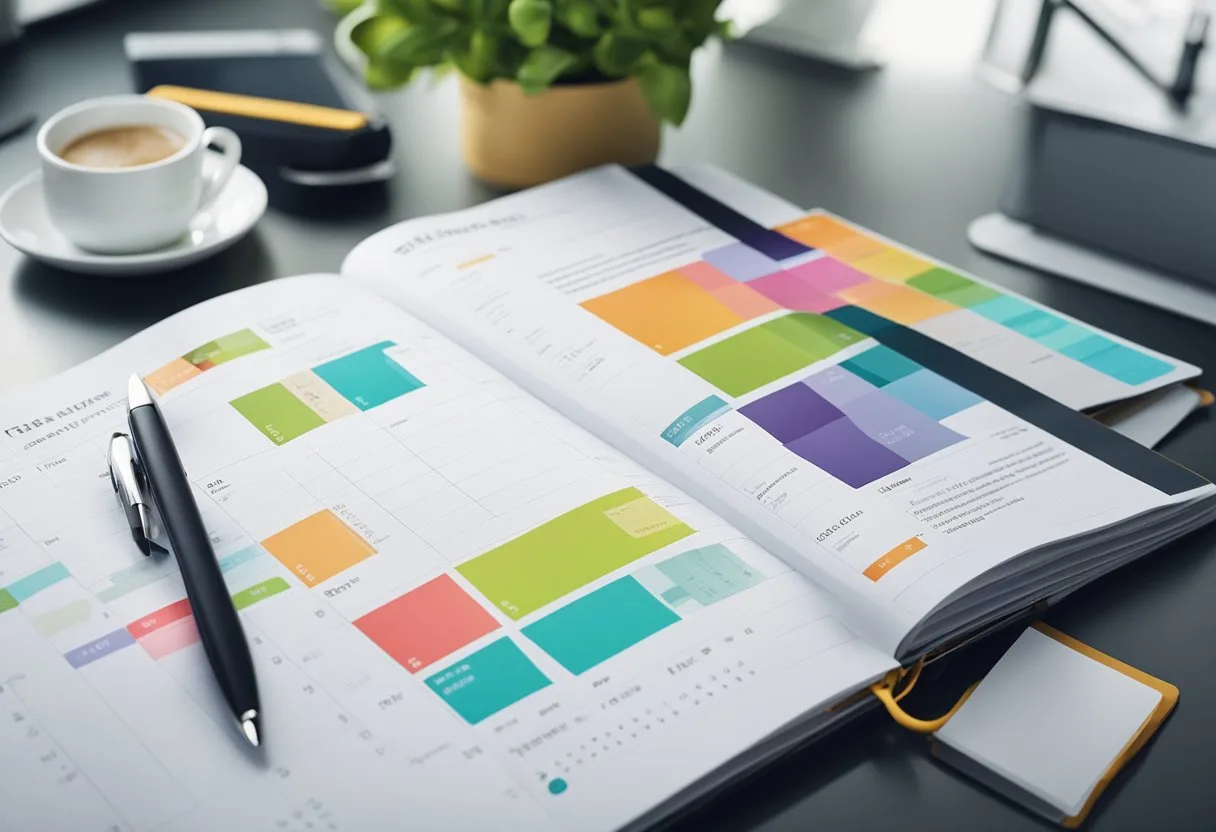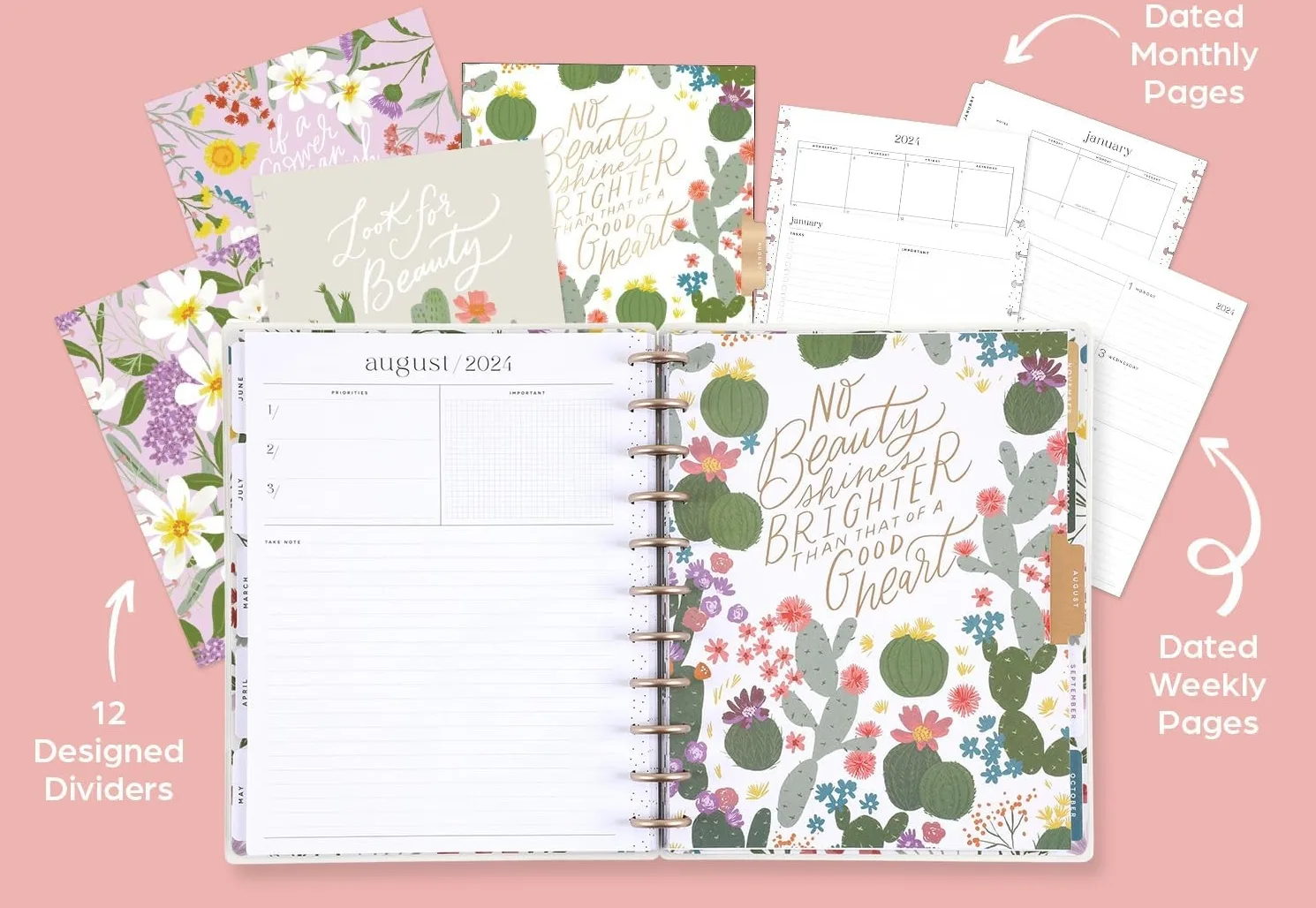A medication planner is a tool that helps individuals keep track of their medication schedules, doses, and any other important information related to their medication. It is especially useful for individuals who take multiple medications or have complex medication regimens. With a medication planner, individuals can easily manage their medications and avoid missed doses or double doses, which can be harmful to their health.
There are many different types of medication planners available, from simple paper templates to electronic apps and devices. Some medication planners include features like reminders, alerts, and automatic refill requests to make medication management even easier.
Understanding Medication Planners
Medication management is an essential aspect of healthcare that involves the safe and effective use of medications to treat medical conditions. Medications can help manage symptoms, prevent complications, and improve quality of life. However, they can also cause harm if not used correctly. Therefore, it is crucial to understand the role of medication in healthcare and how to manage it properly.
Medications are prescribed by healthcare providers to treat various medical conditions. They can come in different forms, such as pills, capsules, liquids, injections, or patches. The dosage and frequency of medication depend on the medical condition, age, weight, and other factors. Patients should take medications as prescribed by their healthcare provider and follow the instructions carefully.
Common Medication Errors and How to Avoid Them
Medication errors are a significant concern in healthcare. They can occur at any stage of medication management, from prescribing to dispensing to administration. Common medication errors include taking the wrong medication, taking the wrong dose, taking medication at the wrong time, and not following medication instructions.
To avoid medication errors, patients should communicate openly with their healthcare provider and pharmacist. They should provide accurate information about their medical history, allergies, and current medications. Patients should also inform their healthcare provider and pharmacist of any side effects or adverse reactions they experience.
In addition, patients should keep a medication list that includes the name, dosage, frequency, and purpose of each medication they take. They should also be aware of potential drug interactions and inform their healthcare provider and pharmacist of any changes in their medication regimen.
Medication management is a critical aspect of healthcare that requires careful attention to detail. Patients should work closely with their healthcare provider and pharmacist to ensure the safe and effective use of medications.
How to Use a Medication Planner

- Select a Planner: Choose a medication planner that suits your needs, whether it’s an app or a physical pill organizer.
- List Your Medications: Write down all medications you’re currently taking, including dosages and frequencies.
- Schedule Times: Determine the best times to take each medication and align them with your daily routine.
- Set Reminders: Use alarms or notifications to remind you when it’s time to take your medication.
- Track Your Intake: Make a habit of recording when you take your medication to maintain a consistent schedule.
- Regularly Update: Adjust your planner as your medications or dosages change based on healthcare provider instructions.
- Review Periodically: Look over your medication schedule regularly to ensure it’s still effective and accurate.
Medication Planner Ideas
- Daily Dosage Logs: Start by creating a chart for each day with spaces for medication names, dosages, and checkmarks when taken.
- Color-Coded System: Begin by assigning a color to each medication and coordinating your planner and containers accordingly.
- Symptom Tracker: Start by adding a section to record any side effects or symptoms you experience from your medications.
- Refill Calendar: Begin by marking the dates you need to request and pick up medication refills.
- Doctor’s Instructions Sheet: Start by creating a page to note down specific instructions from your doctor regarding each medication.
- Insurance Information Keeper: Begin by noting down details of your insurance coverage for prescriptions to have on hand when needed.
- Pharmacy Contacts List: Start by listing contact information for your pharmacy and any delivery services you use.
- Medication Research Notes: Begin by writing down important information about each medication, such as purpose and necessary precautions.
- Travel Medication Planner: Start by planning ahead for trips, ensuring you have enough medication and are aware of time zone changes.
- Family Medication Chart: Begin by creating a chart that includes all family members’ medications, if managing for multiple people.
- Preventative Care Tracker: Start by adding reminders for vaccinations or other preventative treatments.
- Allergy List: Begin by listing any known drug allergies or interactions to avoid adverse reactions.
- Dietary Guidelines: Start by noting any food restrictions or requirements that accompany your medications.
- Exercise Log: Begin by tracking your physical activity, as it can affect how certain medications work.
- Mood Journal: Start by recording your mood daily to see if medications are affecting your mental health.
Designing an Effective Medication Planner

Designing an effective medication planner is crucial to ensure that patients take their medications as prescribed. A medication planner is a tool that is intended to help patients keep track of their medication schedules, doses, and any other important information related to their medications. The following subsections will discuss the key features of a medication planner and how to choose the right medication schedule template.
Key Features of a Medication Planner
An effective medication planner should have the following key features:
- Clear and easy-to-read medication chart: A medication chart should be easy to read and understand, with clear headings and labels for each medication. It should also include information about the dose, frequency, and duration of each medication.
- Medication list template: The medication planner should include a medication list template where patients can record all of the medications they are taking, including over-the-counter medications and supplements.
- Daily medication schedule template: A daily medication schedule template should be included in the medication planner, allowing patients to record the exact times they need to take each medication.
- Reminders: Some medication planners include reminders, such as alarms or notifications, to help patients remember to take their medications on time.
Choosing the Right Medication Schedule Template
When choosing a medication schedule template, it is important to consider the patient’s individual needs and preferences. Some patients may prefer a paper-based planner, while others may prefer an electronic planner that can be accessed on a smartphone or tablet.
Electronic medication planners can be particularly useful for patients who have complex medication regimens or who need to take medications at different times throughout the day. They can also be helpful for patients who travel frequently and need to keep track of their medications while on the go.
The most important factor in choosing a medication schedule template is that it is easy for the patient to use and understand. The medication planner should be designed in a way that is intuitive and user-friendly, with clear instructions and labels. By choosing the right medication schedule template, patients can improve their medication adherence and overall health outcomes.
Medication Adherence Tools

Ensuring medication adherence is crucial for patients with chronic conditions. Medication planners and reminder systems can help patients take their medications as prescribed. Two popular types of medication adherence tools are pill organizers and dispensers, and medication reminder systems.
Pill Organizers and Dispensers
Pill organizers are a helpful tool for patients with complex medication regimens. These organizers come in a variety of shapes and sizes, with daily, weekly, and monthly options available. A weekly pill organizer is a popular choice, as it allows patients to organize their medications for the entire week. This can help patients avoid missed doses and medication errors.
Pill dispensers are another type of medication adherence tool that can help patients take their medications on time. These devices dispense medications at predetermined times, ensuring that patients take the correct dose at the right time. Some pill dispensers also have features that alert patients when it is time to take their medication.
Medication Reminder Systems
Medication reminder systems are another tool that can help patients adhere to their medication regimen. These systems can include mobile apps, text message reminders, and automated phone calls. e-pill is a popular medication reminder system that offers a variety of options for patients. Patients can receive reminders via text message, email, or phone call, and can customize the frequency and timing of the reminders.
Medication adherence tools can help patients take their medications as prescribed. Pill organizers and dispensers can help patients organize their medications, while medication reminder systems can help patients remember to take their medications on time. It is important for patients to discuss medication adherence tools with their healthcare provider to determine which tools are best suited for their individual needs.
Assisting Different Patient Needs

Medication Management for Seniors and Patients with Dementia
For seniors and patients with dementia, medication management can be a challenging task. These patients may have difficulties remembering their medication schedule, doses, and may even forget taking their medication altogether. Caregivers and healthcare providers can assist these patients by developing a medication planner that is easy to follow and understand.
A medication planner can help seniors and patients with dementia keep track of their medication schedule and doses. It can also help them remember when to take their medication and when to refill their prescriptions. Caregivers and healthcare providers can also assist these patients by monitoring their medication intake and ensuring that they are taking the correct dosage at the right time.
Solutions for Caregivers and Healthcare Providers
Caregivers and healthcare providers play a crucial role in medication management for patients. They can assist patients in developing a medication planner that is tailored to their specific needs. This can include creating a schedule that fits their daily routine, setting reminders, and providing clear instructions on how to take their medication.
For caregivers, medication management can be a demanding task. They may need to monitor multiple medications, doses, and schedules for multiple patients. To assist caregivers, healthcare providers can provide training and support on medication management. They can also recommend medication management tools and resources that can help caregivers manage their tasks more efficiently.
Medication management is a crucial aspect of patient treatment. Caregivers and healthcare providers can assist patients in developing a medication planner that is tailored to their specific needs. By doing so, they can ensure that patients are taking the correct dosage at the right time, and ultimately, improve patient outcomes.
Evaluating Medication Planner Options
When it comes to evaluating medication planner options, there are several factors to consider. Two of the most important factors are material and durability, and cost and customer reviews.
Material and Durability
One of the key considerations when evaluating medication planners is the material and durability of the product. The best medication planners are made from high-quality, BPA-free plastic that is both durable and long-lasting. This ensures that the medication planner can withstand daily use and will not crack or break easily.
In addition to the material, it is also important to consider the design and construction of the medication planner. The best options feature a simple, easy-to-use design that is intuitive and straightforward. This makes it easy for patients to keep track of their medication intake and ensures that they do not miss any doses.
Cost and Customer Reviews
Another important factor to consider when evaluating medication planner options is cost and customer reviews. The price range of medication planners can vary widely, so it is important to find a product that fits within your budget.
In addition to cost, it is also important to read customer reviews to see what others are saying about the product. Look for reviews that mention the ease of use, durability, and additional features of the medication planner.
The best medication planner is one that is made from high-quality, BPA-free plastic, is easy to use, and fits within your budget. By considering these factors, you can find a medication planner that will help you manage your medications and ensure that you stay on track with your treatment plan.
Frequently Asked Questions
What are the benefits of using a medication planner app?
A medication planner app can help individuals keep track of their medications and ensure they take them at the right time. It can also help prevent missed doses and medication errors. Medication planner apps can be useful for caregivers who need to manage multiple medications for their loved ones.
How can an online medication planner improve medication adherence?
An online medication planner can provide reminders and alerts to help individuals remember to take their medications. It can also track medication usage and provide reports to healthcare providers. This can help improve medication adherence and ensure that individuals are taking their medications as prescribed.
What features should I look for in an effective pill organizer?
An effective pill organizer should have compartments that are easy to open and close, as well as large enough to hold multiple pills. It should also be durable and easy to clean. Some pill organizers come with additional features such as reminder alarms or the ability to lock certain compartments.
How do I choose the best pill organizer for multiple daily doses?
When choosing a pill organizer for multiple daily doses, it is important to look for one with enough compartments to hold all of the necessary medications. It should also be easy to use and have clear labeling for each compartment. Some pill organizers for multiple daily doses also come with reminder alarms to help individuals remember to take their medications.
What are the advantages of using a 7-day pill organizer with AM/PM compartments?
A 7-day pill organizer with AM/PM compartments can be useful for individuals who need to take medications at specific times of the day. It can help ensure that medications are taken at the right time and in the right dosage. A 7-day pill organizer can help simplify medication management and reduce the risk of medication errors.
Is it safe to pre-sort medications into a pill organizer for extended periods?
Pre-sorting medications into a pill organizer for extended periods can be safe as long as the medications are stored properly and the organizer is kept in a cool, dry place. However, it is important to check the expiration dates of medications before pre-sorting them, as some medications may lose their effectiveness over time. It is also important to keep the pill organizer out of reach of children and pets.




